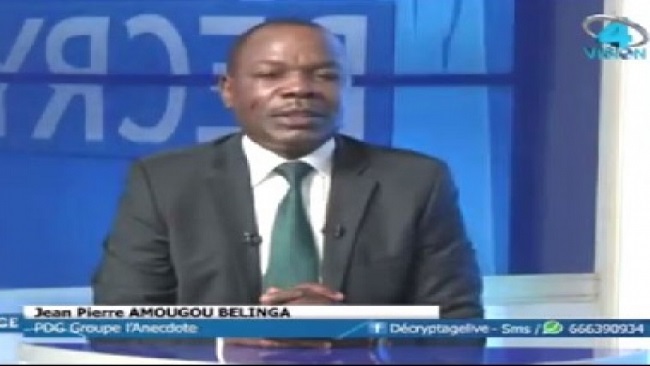The killing of Martinez Zogo highlights a concerning trend of how far Amougou Belinga and his gang are willing to go
The body of one of the most prominent journalists in Cameroon was found near the capital of Yaoundé with signs of torture in what appears to be a brutal murder linked to his work.
Martinez Zogo’s body was on Sunday found allegedly badly mutilated and his clothes were scattered in the radius of around 100 meters, said Reporters Without Borders.
Zogo, who hosted one of the most popular radio shows in the country, was abducted at the beginning of last week not long after he talked on air about suspicious leaks of tens of millions of dollars from the Cameroonian Treasury.
He claimed to have evidence showing that Jean Pierre Amougou Belinga, a media mogul known to have close ties with several government ministers, was the main beneficiary of the scheme.
This is not the first time Belinga’s name figures in connection with attacks on journalists.
In March last year, a local reporter Paul Chouta was nearly beaten to death by unknown assailants after he criticized Belinga on social media.
According to R. Maxwell Bone, an expert on Cameroon’s political economy, attacks on Chouta and Zogo were intended as a message from kleptocratic networks abusing the Cameroonian state that no criticism of their activities will be tolerated.
“The killing of Zogo highlights a very concerning trend of how far these networks are willing to go to protect their interests and how risky it is to be a journalist in Cameroon,” he told OCCRP on Wednesday.
Cameroon, which has since 1982 been run by strongman Paul Biya who will be celebrating his 90th birthday in February, is one of the most authoritarian countries in Africa.
On Sunday evening, the government announced an inquiry into Zogo’s death.
However, Bone was skeptical that they would ever try to identify who ordered the gruesome murder.
“At most, they will find a random individual who may have been contracted to do the killing. I would be extremely surprised if they went after Belinga and others,” he concluded.
Source: OCCRP.org





